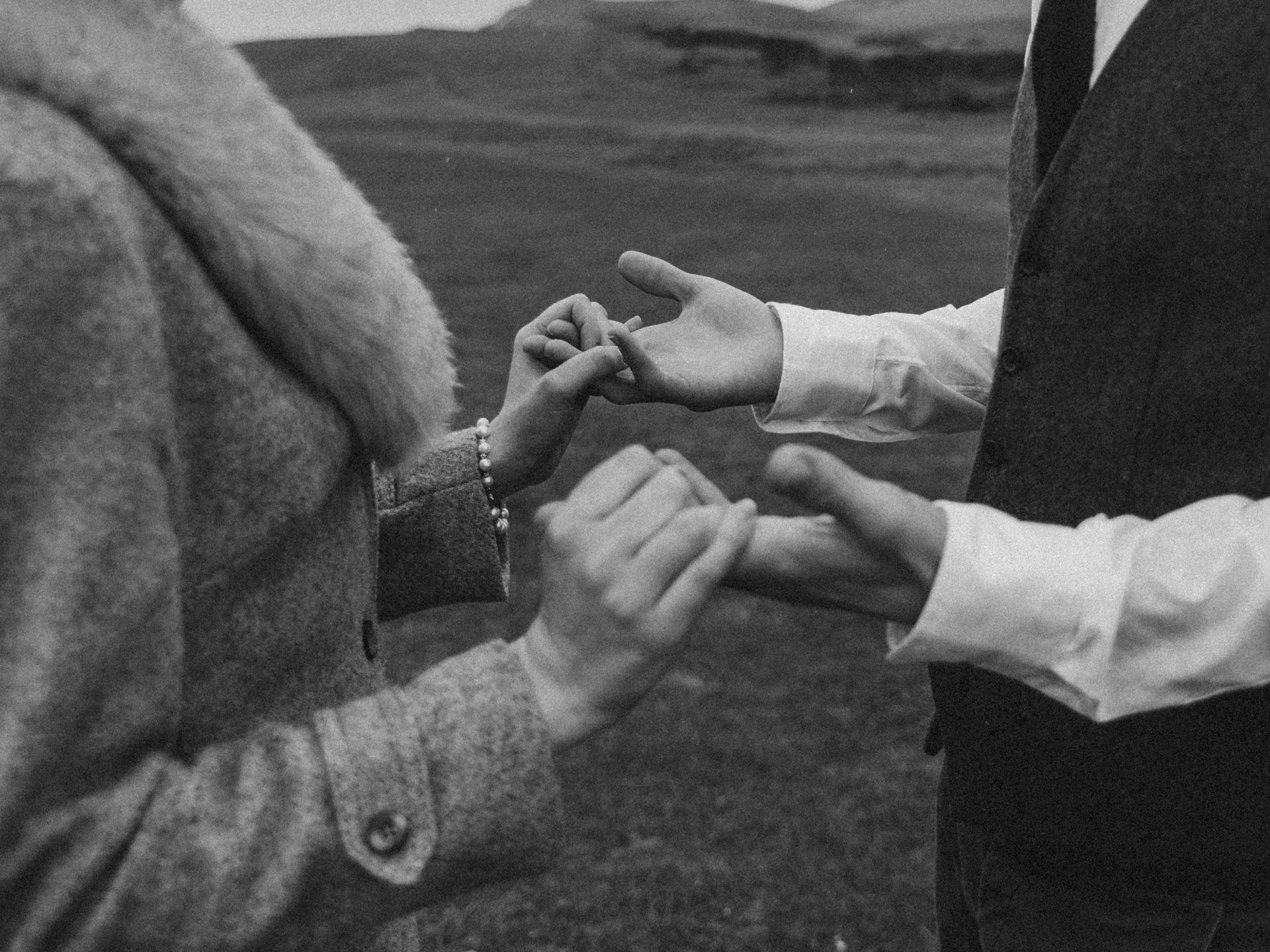Growing into an Emotionally Mature Adult
Robyn Black • March 22, 2021
Emotionally Healthy Spirituality Week 7

Today we’re delving into growing into an emotionally mature adult. The last few weeks have led to this. Obviously we cannot be mature if we’re not authentic. We cannot be emotionally mature while we refuse to be honest about the impact of past events on our present way of being. We cannot go on to maturity if we get to the wall and give up entirely. We cannot go on to maturity if we do not face the reality of our grief and losses and mourn them properly. And we cannot go on to maturity if we refuse to cultivate a life of solitude and quietness and reflection and rest, which Sabbath and the Daily Office help us to do.
Now, regardless of our biological age, we are at different stages of emotional maturity. We can be in our thirties or forties physically, and yet be emotionally a teenager or infant. Here’s a description of the 4 emotional stages we find ourselves in. See which of these you identify with most:
Emotional Infants • Look for others to take care of them • Have great difficulty entering into the world of others • Are driven by need for instant gratification • Use others as objects to meet their needs
Emotional Children • Are content and happy as long as they receive what they want • Unravel quickly from stress, disappointments, trials • Interpret disagreements as personal offenses • Are easily hurt • Complain, withdraw or become sarcastic when they don't get their way • Have great difficulty calmly discussing their needs and wants in a mature, loving way
Emotional Adolescents • Tend to be defensive • Are threatened and alarmed by criticism • Keep score of what they give so they can ask for something later in return • Deal with conflict poorly. • Become preoccupied with themselves • Are critical and judgmental
Emotional Adults • Are able to ask for what they need, want, or prefer--clearly, directly, honestly, respectfully • Recognize, manage, and take responsibility for their own thoughts and feelings • Can, when under stress, state their own beliefs and values without becoming adversarial • Respect others without having to change them • Give people room to make mistakes and not be perfect • Have the capacity to resolve conflict maturely and negotiate solutions that consider the perspectives of others
There’s a parable in scripture that can teach us something about emotional maturity and love. The Good Samaritan is well known to many here. We read about a guy who asks what he has do to inherit eternal life and Jesus says ‘well, what do you think?’. He says ‘well, You gotta love God with all your heart, all your soul, all your strength, and all your mind.’ And, ‘Love your neighbour as yourself.’ ‘Dead right’, says Jesus. But then maybe thinking there were some people he’d just as soon not have on the neighbour list to love, the man seeks clarification and says, ‘but who is my neighbour?’ This is Jesus’ reply. Luke 10: 30-37 (NLT)
“A Jewish man was traveling from Jerusalem down to Jericho, and he was attacked by bandits. They stripped him of his clothes, beat him up, and left him half dead beside the road. By chance a priest came along. But when he saw the man lying there, he crossed to the other side of the road and passed him by. A Temple assistant walked over and looked at him lying there, but he also passed by on the other side. Then a despised Samaritan came along, and when he saw the man, he felt compassion for him. Going over to him, the Samaritan soothed his wounds with olive oil and wine and bandaged them. Then he put the man on his own donkey and took him to an inn, where he took care of him. The next day he handed the innkeeper two silver coins, telling him, ‘Take care of this man. If his bill runs higher than this, I’ll pay you the next time I’m here.’
“Now which of these three would you say was a neighbour to the man who was attacked by bandits?” Jesus asked.
The man replied, “The one who showed him mercy.”
Then Jesus said, “Yes, now go and do the same.”
The emphasis on this word “do” is an action word that means go and live this way.
The road from Jerusalem to Jericho is a desolate and tough place in climate. It descends 3300 feet as you wind your way from Jerusalem, It is a very narrow and dangerous road with lots of caves. The man is beaten up, he has been abandoned and left there to die. The Priest and the Levite come along. The Priest and Levite know the Bible. Their whole life is set aside to love and serve God, but they see the man and do nothing. We don’t know why. Maybe they thought he was dead, and if they touched a dead body they couldn’t serve in the temple that week. Maybe they may have been worried that there were still robbers in the caves and they could’ve been beaten up. Maybe they had a lot on their minds. The point is that they kept going. What is clear is they had disconnected spirituality from loving well. Our reading says “Then a despised Samaritan came along, and when he saw the man, he felt compassion for him”.
Despised…that’s a strong word isn’t it? Jews and Samaritans hated each other and were in essence 2 races, 2 different religions with 2 political views. Jews saw Samaritans as second class and not worthy of the Kingdom of God. They were seen as dirty, inferior, untrustworthy, disgusting. But the Samaritan had ‘Compassion” This is the key phrase of the entire parable because the Priest and the Levite had no compassion. Oh, they had learnt about love in the scriptures but it was just an idea for them. The word “compassion” is about a feeling in your stomach, like a wrenching in your stomach you can’t ignore. The Priest and Levite had head knowledge about ‘love your neighbour’, but the Samaritan let love impact him. He actually did something.
When I in training college Dean Smith spoke about a book by the Jewish theologian Martin Buber, called I and Thou. And he said that the human tendency is to look at people as an, “it.” He said, healthy mature adults don’t see people as ‘it’s’, we see people as made in the image of God. But sometimes we don’t see the individual and their sacredness. Sometimes at Uni we might have been doing a group assignment and we view the others as ‘its’. We don’t really care what their story is, we just want them to do their bit so we can do well in the assignment. They are a means to an end.
We may view people from different cultures as ‘its’ or different life styles as ‘its’. We don’t relate to them, we don’t see them as individuals and we don’t really want to understand their situation. Or we help out someone with toys at Christmas but they don’t seem grateful and they don’t come to church, so we give the toys a miss next year. Perhaps being kind to them was a means to an end…I’ll give you something, but really the expectation is that you’ll come along and join us. The Samaritan sees this man and doesn’t see him as an object. He sees them as someone made in the image of God and he enters his world.
However, he also keeps a sense of himself and his own boundaries.
The Samaritan doesn’t have all of the talents or gifts needed to help this man. Notice that while he stops on the journey to care for the man, he then takes him to the inn but doesn’t bring the guy home. The Samaritan actually goes on his way and continues his journey. He spends his money but he doesn’t give the guy his credit card. He comes back and pays what is needed and he does enough to save the half dead guy. The little bit that he has he is willing to give any save the guys life but he also holds onto his life and continues on his own journey.
What if the Samaritan had brought the half dead man home to his house and then he stayed for six months and then he began to resent him? His wife divorces him and his kids are distant because they never see him and the Samaritan no longer picks anyone up anymore.
We can’t be everything to everyone and we need to know our limitations and boundaries. There’s many an Officers kid or ministers kid who is been resentful and angry at God and the church, because they never saw their parent…they were always out ministering to others. The Samaritan saved the beaten up guy, but he also attended to his own journey and life.
Seeing people and entering another’s world, also comes at a cost. For the Samaritan it cost some time and some money and maybe some reputation depending on who knows that he picked up this enemy off the side of the road. If we want to love well we have to recognise that it will come at a cost and it does take sacrifice. This has been our Self Denial Appeal and we give because we love. There’s a cost, a sacrifice. You’re asked to give over and above your regular giving and we do, because we can’t just walk past another in need. We stop, we enter their world through the videos, and there is a cost to us.
But the truth is, we are good to others because God has been good to us. We love others because God loves us. Jesus always integrated the love of God with the practice of loving people. Pete Scazzero says, one of the greatest gifts we can give the world is to be a community of emotionally healthy adults who love well. This will take the power of god and a commitment to learn and grow and break with unhealthy destructive habits that go back generations in our families and culture.
Sermons For The Moment

This is an interesting Psalm – another psalm of ascent. We spoke about these Psalms of Ascent a few weeks ago. They were songs the Jewish people sang as they made their way to Jerusalem to go to the temple, through the forest, along the tracks, camping by the roads. And I believe songs like this kept them focussed and kept their spirits up. I can imagine days of walking together, tiring, boring, hot and dusty. And singing some of these Psalms keep them focussed on the faithfulness of God. Much better then eye spy for the kids. Journeys are not all their cracked up to be even if the destination is worth it. As you know, when I was growing up we always holidayed at Bawley Point past Ulladulla, and in those days it was about a 4 hour drive from Sydney. We always left later than we meant to…and the last 20 mins was on a dirt road. One year when I was probably about 4 years old it was dark by the time we got to the dirt road, and half way along the dirt road, was a dodgy wooden bridge over a river. I think part of the bridge had been damaged and we had to wait a bit in the pitch black darkness before we could proceed. Dad was out with a torch ensuring the bridge was safe to drive on and mum and us 4 kids were sitting in the darkness – no street lights, no moonlight. Of course, you might be able to guess what I said to mum in that car, with fearful crying…you’ve probably heard it from kids before. I said ‘I want to go home’. Mum said to me, ‘we can’t go home Robyn, we’re almost there’. In truth, after the bridge we had the last 10 minutes of a 4 hours journey left. We safely crossed the bridge and we were OK. But I remember it. I remember the feeling of being scarred in the darkness. I remember not liking this journey at all. Even though I always loved the destination. Well this psalm celebrates the end of the journey and the arrival at the destination. Psalm 126:1-3, “When the Lord brought back his exiles to Jerusalem, it was like a dream! We were filled with laughter, and we sang for joy. And the other nations said, “What amazing things the Lord has done for them.” Yes, the Lord has done amazing things for us! What joy!” Before we can understand the laughter and joy of the Israelites, we have to understand their journey. This Psalm looks back to when they arrived back in Jerusalem after 70 long years in Babylon. The captives had experienced great sorrow and mourning in exile. We read these heartbreaking words in Psalm 137: “Beside the rivers of Babylon, we sat and wept as we thought of Jerusalem. We put away our harps, hanging them on the branches of poplar trees. For our captors demanded a song from us. Our tormentors insisted on a joyful hymn: “Sing us one of those songs of Jerusalem!” But how can we sing the songs of the Lord while in a pagan land?” (Psalm 137:1-4). Their tormentors demanded they sing joyfully, but they were like – that’s impossible, it doesn’t come from our heart. So they just sat by the waters of Babylon and wept. But now by an amazing work of God they were suddenly back in Jerusalem. And so their joy came from their heart. The wait was over, the journey was complete. “We were filled with laughter, and we sang for joy.” The journey is the hard bit though isn’t it? I was reminded of this, this week. An Officer couple I was speaking to, said that their teenager said some very hurtful things to them. Stuff like, ‘you make my life worse’. As they spoke to me, I did very little but listen and pray with them. They do have other supports in their life as well, already seeing a psychologist. But what I was thinking in my head as they were speaking was ‘oh the teenage years, I’d forgotten them’. Though we have 2 wonderful young adults in P and K, they were times when it was more than tense. K wears her heart on her sleeve, and to this day apologises for some of the things she said to me. And P, you wouldn’t know what he was thinking, and then all of a sudden all his thoughts and feelings for the last 3 years would come out like molten lava everywhere. A few days later I checked in to see how the couple and their teenager were going. I mentioned in passing about teenage years and very briefly about our experiences. I didn’t want to make it all about me. But I said teenage years can be painful and those years can really hurt everyone in the family. Teenager included. They know that we have a good relationship with P and K and they said to me, you know, this is helpful. It gives us hope. I was like, yep, this too shall pass. Because when you’re in the midst of the journey of pain and sorrow, you sometimes wonder if there’s light at the end of the tunnel. If you’ll laugh again or experience joy again. You begin to wonder, “Is this all that God has for me? Will I ever be happy again?” And here’s the promise in Psalm 126:4-6, “Restore our fortunes, Lord, as streams renew the desert. Those who plant in tears will harvest with shouts of joy. They weep as they go to plant their seed, but they sing as they return with the harvest.” When you are going through a time of deep sorrow, Psalm 126 is strong medicine for your soul. It carries a powerful message of hope. It tells you that times of trouble and sorrow do not last. It tells you that God will turn your sorrow to joy and your tears to laughter. If you are going through a challenging time right now, I pray that this psalm will speak to your heart this morning. Let me tell you right up front, whatever you’re going through, it will get better. God will change your tears to joy. This week I found something I wrote about 10 years ago. I had written it on a piece of paper and there was a whole reflection about my life. At the time we had my mum living with us, she had dementia, and mostly I remember the good times and the fun times with her. I was also the Corps Officer at Glebe and Bob was the manager at William Booth House. After a page of writing I had written something like this “I’m often anxious, I’m usually stressed, I have eczema on my eyelids and ulcers in my mouth. I always feel pressed.” I went out to Bob in the lounge room and I’m like, ‘oh my goodness, eczema on my eyelids and ulcers in my mouth’, often anxious, usually stressed. The thing is, my life feels a long way from that now, and I’d forgotten what that part of my journey felt like. I’m sure when I was there I couldn’t look ahead and see a time of joy…but the truth is that “Those who plant in tears will harvest with shouts of joy. They weep as they go to plant their seed, but they sing as they return with the harvest.” This too shall pass. ‘Yes, the Lord has done amazing things for us!’ says verse 3. God is faithful – he does the healing, the restoring, he brings the streams in the desert that renews and brings fruitfulness. I don’t need to tell you – it takes time. Today, I’m praying for a work of healing in your life, a gradual restoration of joy, of laughter. Like me as a kid, sometimes we don’t like parts of this journey at all. Even though we know our destination is good. And ultimately, we have a destination like no other and that’s the promise of God. A home in heaven made possible through Jesus. May God bless you this week as you look to Him, listen to Him, find your hope in Him and find courage and healing in your journey.







